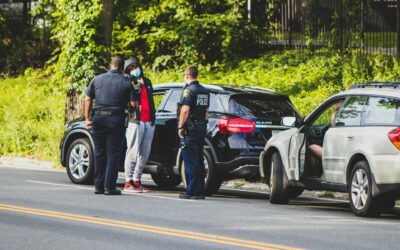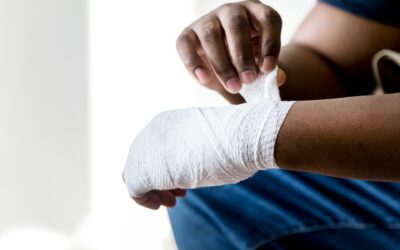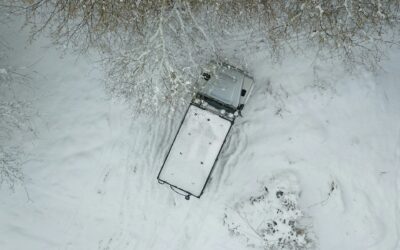Car accidents can be very scary. If you’ve just been in a car accident in Aurora, you might feel confused and worried. It’s important to know what to do next to make sure you are safe and protected.
Knowing what to do after a car accident can help you stay calm and make smart choices. This guide will help you through each step to ensure you are safe and clear on what to do next.
Immediate Steps to Ensure Safety and Health
After a car accident, your health and safety come first. Here’s what you need to do immediately:
Prioritize Health and Safety
Check yourself and passengers for any injuries. If anyone is hurt, call 911 right away. Even minor injuries can be more serious than they seem. Keep calm and focused to handle the situation better.
Check for Injuries
Look around and see if anyone is hurt. Inspect yourself and others for signs of injury. If someone is unconscious or complains of neck or back pain, avoid moving them until medical help arrives. Remain still until you are sure it’s safe to move.
Move to a Safe Location if Possible
If it’s safe, move away from traffic. Keeping your hazard lights on can alert other drivers. Moving to the shoulder or a nearby parking lot can help avoid further accidents. Stay with your vehicle if it is unsafe to move it.
Gathering Crucial Information
Collecting the right information after an accident is very important. This will help when dealing with insurance and any legal matters later on.
What to Collect from All Parties
Exchange details with the other drivers:
- Names and contact information
- Driver’s license numbers
- Insurance company names and policy numbers
- Vehicle makes, models, and license plate numbers
Documenting the Scene
Take photos of:
- All vehicles involved, showing any damage
- Road conditions and traffic signs
- Any visible injuries
- The wider scene, including skid marks or debris
Photographs act as clear proof and can help explain what happened.
Importance of Witness Statements
Look for people who saw the accident. Ask for their contact information and if they’re willing to give a statement. Witnesses can provide valuable insights that support your version of events. Make notes of what they say or, if possible, record their statements with their permission.
Collecting this information will make the insurance process smoother and can be critical if you need legal help later.
Reporting the Accident
Properly reporting the accident is crucial. It ensures that official records are created, which can be critical for insurance and legal matters later on.
When and How to Contact Authorities
Immediately call 911 if there are injuries, significant damage, or if anyone is acting aggressively. For minor accidents, you may still need to file a report depending on state laws and insurance requirements. It’s always best to have a police officer assess the situation.
What to Say to Police Officers
When speaking with police:
- Stick to the facts.
- Describe what happened without admitting fault.
- Let them know if you or anyone else needs medical attention.
- Be polite and provide the necessary information only.
Honest and clear communication helps create an accurate police report.
Importance of Obtaining the Police Report
Make sure you get a copy of the police report or at least the report number. This document is key for dealing with your insurance company and any potential legal issues. Police reports often include details that help determine who was at fault, which influences insurance claims and legal proceedings.
Navigating Insurance and Legal Processes
After ensuring everyone’s safety and reporting the accident, the next big step is dealing with your insurance and understanding your legal options.
Contacting Your Insurance Company
Call your insurance company as soon as possible to report the accident. Provide them with:
- The police report number
- Photos and notes you took at the scene
- Information from the other parties involved
Cooperate fully and answer any questions they might have. Knowing the details of your policy can also help you understand what is covered and any deductibles that apply.
Understanding Your Policy
Review your insurance policy to understand:
- Coverage limits
- Deductible amounts
- Rental car coverage, if needed
- Medical payment coverage
Knowing your policy details helps prevent surprises later and ensures you know what to expect.
When to Seek Legal Help from a Personal Injury Attorney
Sometimes, you may need legal help:
- If you or someone else has severe injuries
- If there’s a dispute about who is at fault
- If the insurance settlement is not fair
- If you’re overwhelmed by the legal process
A personal injury attorney can help protect your rights and ensure you get fair compensation for any damages.
Understanding each step to take after a car accident in Aurora can make a big difference. From ensuring safety, gathering important information, reporting accurately, to navigating the insurance and legal processes, each step is crucial. Knowing what to do helps reduce stress and protect your interests.
If you find yourself needing legal help after an accident, reach out to Cave Law. Our car accident lawyer in Aurora, CO is here to guide you through every step and make sure your rights are protected. Contact us today for expert legal support tailored to your needs.




